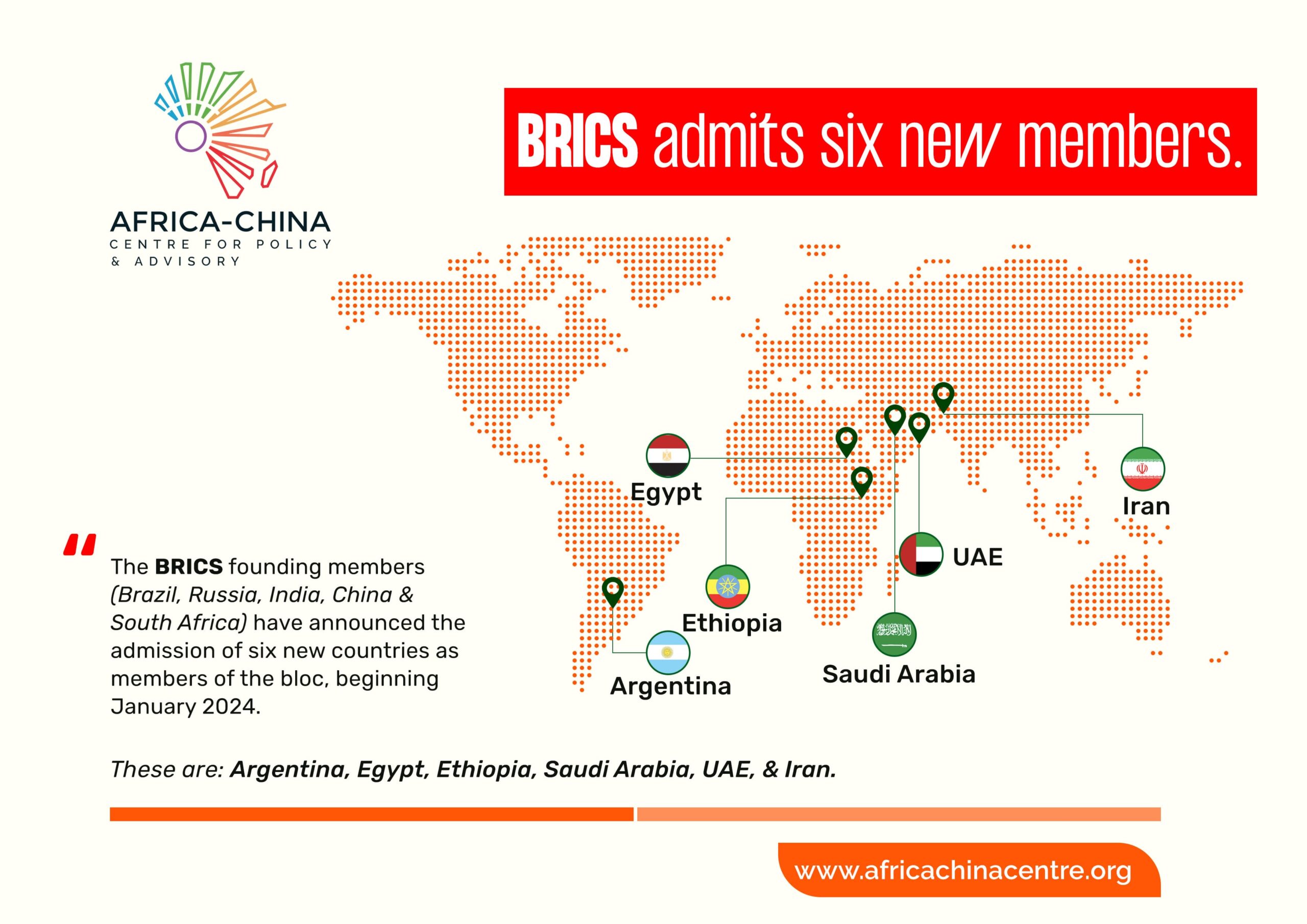
During the just-ended 15th BRICS Summit, it was announced that six countries, namely Argentina, Egypt, Ethiopia, Iran, Saudi Arabia, and the United Arab Emirates, have been admitted to becoming new BRICS members.
The membership of the new members will come into effect on January 1, 2024, Mr. Ramaphosa said.
The BRICS founding members (Brazil, Russia, India, China, and South Africa) which make decisions by consensus, agreed on “the guiding principles, standards, criteria and procedures of the BRICS expansion process”, during the three-day annual summit held in Johannesburg
Chinese President Xi Jinping said that the BRICS expansion is historic and a new starting point for BRICS cooperation.
BRICS, initially known as BRIC, is a significant alliance of the world’s major economies, namely Brazil, Russia, India, China, and South Africa, the latter joining the group in 2010 to expand it from its original four-member composition.
The BRICS have evolved into one of the world’s most crucial economic blocs, collectively accounting for over a quarter of the global GDP and representing 42 percent of the total global population.
Since 2009, the BRICS nations have been convening annual summits, with each member country taking turns hosting these meetings. Before South Africa’s inclusion, the group conducted two summits under the BRIC designation, one in 2009 and the other in 2010. The inaugural BRICS summit, featuring all five members, occurred in 2011, solidifying the group’s expanded influence.
Leading up to this year’s 15th BRICS Summit, South Africa said that more than 40 countries have expressed interest in joining BRICS, and 22 have formally requested to be admitted. The expansion of BRICS includes Saudi Arabia, which is the top oil exporter in the world and the bloc’s biggest trading partner in the Middle East.
Source: www.africachinacentre.org
